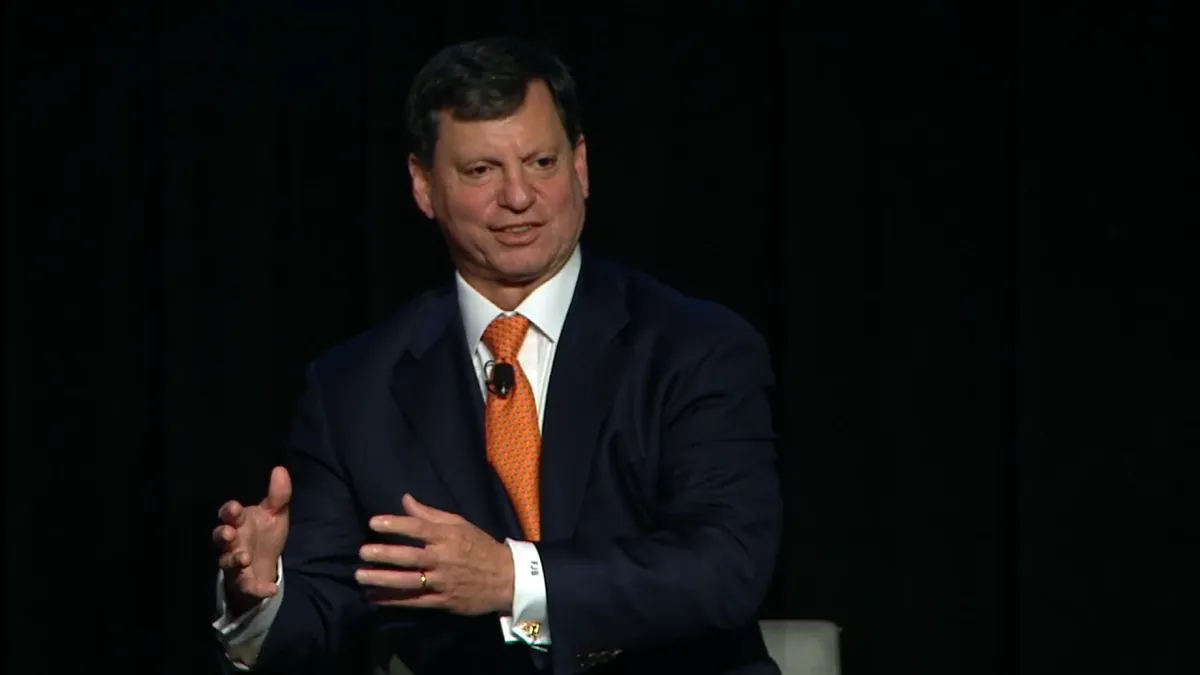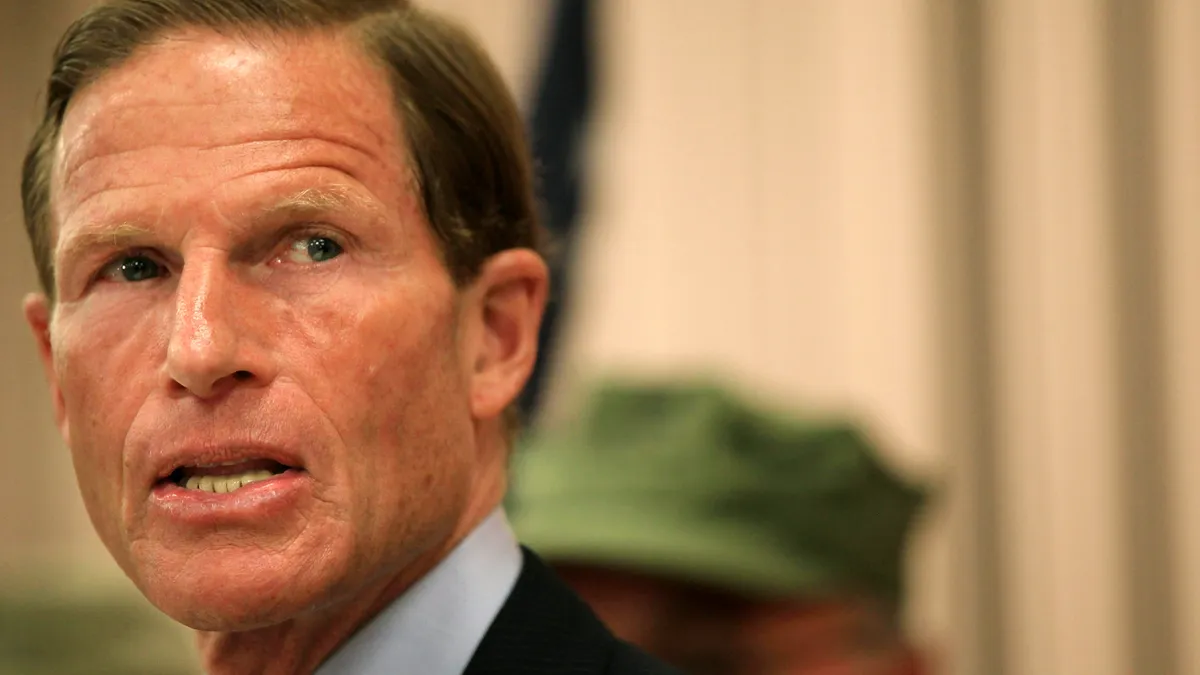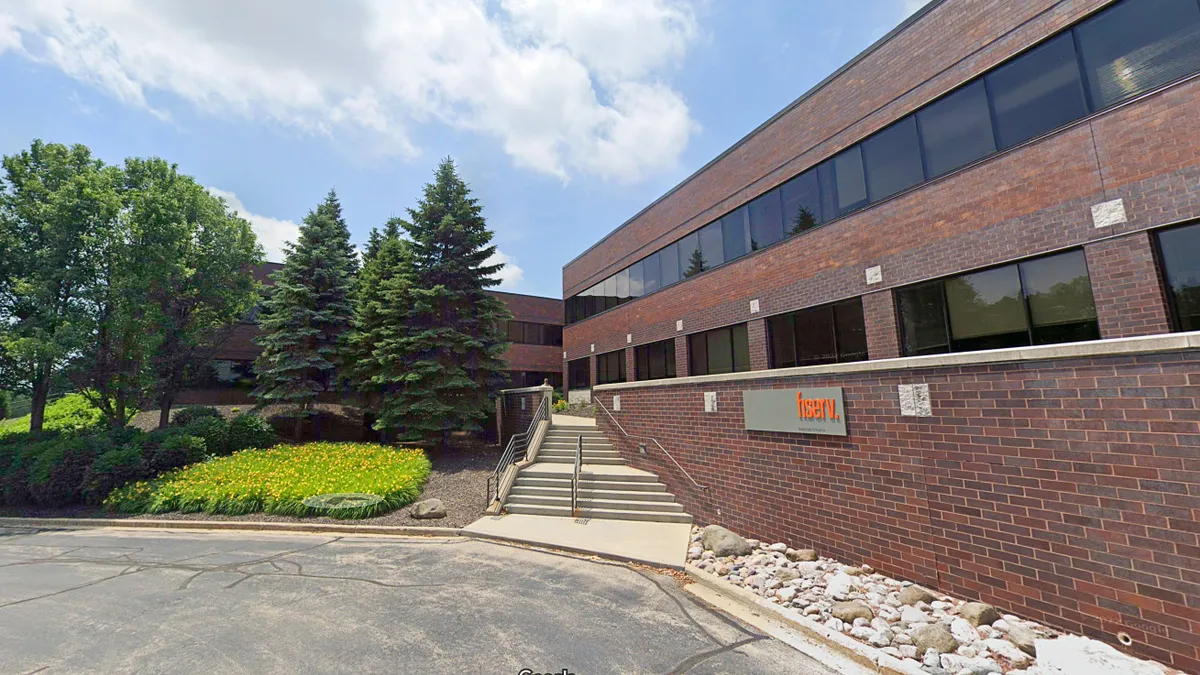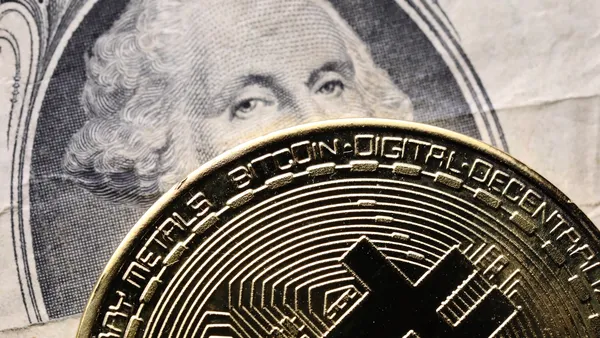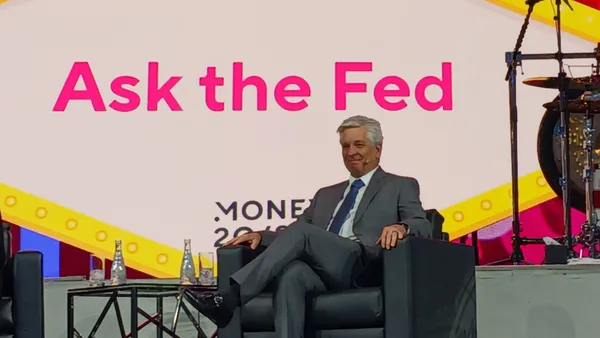Fiserv CEO Frank Bisignano provided insights on his company’s merger strategy during the Money 20/20 conference in Las Vegas on Monday.
During an on-stage interview with Fox Business anchor Liz Claman, Bisignano explained that he looks for companies that complement Fiserv’s services and contribute to the company’s long-term strategy.
Mergers aren’t easy, the CEO stressed. “How are you going to take all those mechanisms and have them work together?” he said. “You have to have a team that is dedicated to the cause. Integrated companies are hard.”
Bisignano explained how he likes founders of an acquired firm to participate in the combined company.
“We pride ourselves in keeping founders involved,” he said. “We have multiple founders within the company.”
Milwaukee-based Fiserv paid $22 billion for First Data in a high-profile merger in 2019, after First Data bought the small business payment processor Clover in 2012 for $56 million.
Bisignano knows about keeping top executives around partly because that was the case for him. He was CEO of First Data starting in 2013 and became CEO of Fiserv in 2020.
He has worked closely with the founders of Clover — John Beatty, Leonard Speiser and Kelvin Zheng — he said Monday. “John Beatty was a great partner of mine,” the CEO said.
Beatty was a CEO of Clover from 2016 to 2020 and then stuck around on a part-time basis briefly in 2021, according to his LinkedIn profile. Speiser left in early 2017 and Zheng left in 2012, according to their LinkedIn profiles.
Fiserv has spent roughly $2 billion over the past four years on acquisitions, CFO Bob Hau said at the Wolfe Fintech Forum in March.
Among its purchases have been the core banking software provider Finxact for $650 million in 2022; the payments processing and sales organization LR2 Group, purchased for $26 million in 2022; the fintech Ondot for $270 million in 2021; and a restaurant marketing company called BentoBox, also in 2021.
At that time, Hau said Fiserv remains interested in “tuck-in type” deals. Nonetheless, Bisignano and Claman didn’t discuss the company's potential acquisitions at the conference this week.
Instead, Bisignano explained how he draws newly acquired businesses into the fold. For instance, he said he holds a founders dinner every three months or so to meet with the people who started the companies Fiserv has absorbed, he said. “I listen to the ways they think they can do a better job, and the things they think I should do differently,” Bisignano said.
The end of physical cards?
On another front, Claman asked if Bisignano envisions consumers ever disposing of their physical credit cards in favor of virtual alternatives like digital wallets. The CEO said he thinks there will always be a place for plastic cards.
“If you talk to the people who run our [card] issuing business, they are producing more credit cards now than they were before,” Bisignano said.
He compared physical credit cards to bank branches. The digital revolution in the 1990s fostered discussion of the end of branches where bank customers can set foot in a physical retail location. The notion at that time was that they were threatened by ATMs and online banking, he said.
Nearly three decades later, bank branches still exist, he noted. “So I think cards will stay around longer than people think,” Bisignano predicted.
The role of artificial intelligence
Bisigano was also asked if the rise of generative artificial intelligence — which can carry on a conversation much like a person — will change the way Fiserv deals with customers.
“Have you discovered a way to have a hyper-personalized customer experience by using the chat box?” Claman asked the Fiserv CEO.
Bisignano did not directly answer the question, but said there will always be a place for employees. “We didn’t send a chatbot here” to Money 20/20, he said.
The night before the question-and-answer session, he had dinner with 29 CEOs, Bisignano said. “We can’t do that through a chatbot.”
Artificial intelligence can help Fiserv build knowledge of clients and answer questions more efficiently, he said, but there ultimately needs to be a human element.



